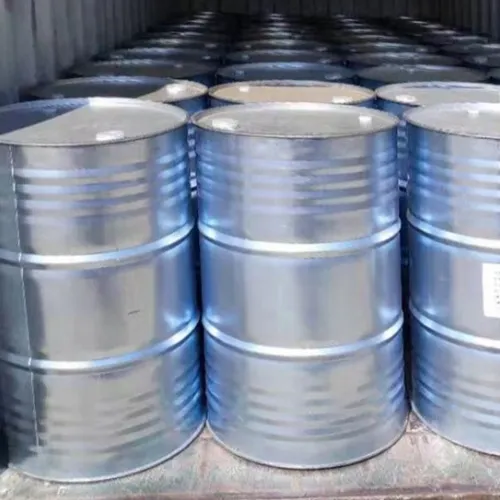Warning: Undefined array key "title" in /home/www/wwwroot/HTML/www.exportstart.com/wp-content/themes/1198/header.php on line 6
Warning: Undefined array key "file" in /home/www/wwwroot/HTML/www.exportstart.com/wp-content/themes/1198/header.php on line 7
Warning: Undefined array key "title" in /home/www/wwwroot/HTML/www.exportstart.com/wp-content/themes/1198/header.php on line 7
Warning: Undefined array key "title" in /home/www/wwwroot/HTML/www.exportstart.com/wp-content/themes/1198/header.php on line 7
- Afrikaans
- Albanian
- Amharic
- Arabic
- Armenian
- Azerbaijani
- Basque
- Belarusian
- Bengali
- Bosnian
- Bulgarian
- Catalan
- Cebuano
- China
- China (Taiwan)
- Corsican
- Croatian
- Czech
- Danish
- Dutch
- English
- Esperanto
- Estonian
- Finnish
- French
- Frisian
- Galician
- Georgian
- German
- Greek
- Gujarati
- Haitian Creole
- hausa
- hawaiian
- Hebrew
- Hindi
- Miao
- Hungarian
- Icelandic
- igbo
- Indonesian
- irish
- Italian
- Japanese
- Javanese
- Kannada
- kazakh
- Khmer
- Rwandese
- Korean
- Kurdish
- Kyrgyz
- Lao
- Latin
- Latvian
- Lithuanian
- Luxembourgish
- Macedonian
- Malgashi
- Malay
- Malayalam
- Maltese
- Maori
- Marathi
- Mongolian
- Myanmar
- Nepali
- Norwegian
- Norwegian
- Occitan
- Pashto
- Persian
- Polish
- Portuguese
- Punjabi
- Romanian
- Russian
- Samoan
- Scottish Gaelic
- Serbian
- Sesotho
- Shona
- Sindhi
- Sinhala
- Slovak
- Slovenian
- Somali
- Spanish
- Sundanese
- Swahili
- Swedish
- Tagalog
- Tajik
- Tamil
- Tatar
- Telugu
- Thai
- Turkish
- Turkmen
- Ukrainian
- Urdu
- Uighur
- Uzbek
- Vietnamese
- Welsh
- Bantu
- Yiddish
- Yoruba
- Zulu
Aug . 19, 2024 22:47 Back to list
Comparison of Sucralose and Aspartame in Food Products and Health Effects
The Sweet Debate Sucralose vs. Aspartame
In the ever-evolving landscape of food and beverage sweeteners, two artificial sweeteners, sucralose and aspartame, have gained significant attention and sparked ongoing debates among consumers, health professionals, and regulatory agencies. Both are popular sugar substitutes used in a variety of products, including soft drinks, desserts, and low-calorie snacks. However, they possess distinct properties, health implications, and public perceptions that merit a closer examination.
Understanding Sucralose
Sucralose, discovered in 1976 and approved for use in the United States in 1998, is derived from sugar through a chlorination process that enhances its sweetness. Remarkably, sucralose is estimated to be about 600 times sweeter than sucrose, with zero calories. This makes it an attractive option for those seeking to reduce calorie intake without sacrificing sweetness. One of the standout features of sucralose is its stability at high temperatures, making it suitable for cooking and baking.
Despite its popularity, some concerns have been raised regarding the health effects of sucralose. Research on its long-term consumption has produced mixed results. While the U.S. Food and Drug Administration (FDA) and other health organizations endorse its safety, some studies suggest potential adverse effects on gut health and glucose metabolism. Nevertheless, more extensive and rigorous studies are required to fully understand the implications of long-term sucralose consumption.
Exploring Aspartame
Aspartame, on the other hand, has been a staple of artificial sweeteners since the 1980s. Comprising two amino acids, aspartic acid and phenylalanine, it is approximately 200 times sweeter than sugar and also has minimal caloric value. Aspartame is widely utilized in a variety of food and drink products, from diet sodas to sugar-free gum.
sucralose et aspartame

Despite its widespread use and approval by agencies such as the FDA and the European Food Safety Authority, aspartame has been at the center of controversy for decades. Allegations have linked it to various health issues, including headaches, allergic reactions, and more severe conditions like cancer. However, extensive research has failed to provide conclusive evidence supporting these claims. Notably, individuals with the genetic disorder phenylketonuria (PKU) must avoid aspartame due to their inability to metabolize phenylalanine, leading to a cautious approach towards its consumption.
The Health Perspectives
The ongoing debate between sucralose and aspartame often boils down to personal preference, dietary restrictions, and health philosophies. For those concerned about calories and weight management, both sweeteners offer viable alternatives to sugar. However, the differences in their composition and metabolic pathways may influence choices.
Health professionals generally recommend moderation when using artificial sweeteners, advising individuals to pay attention to their bodies and any potential side effects. Each person’s response to these sweeteners can vary, making it essential to consider individual health conditions, dietary needs, and lifestyle choices.
Conclusion
In summary, both sucralose and aspartame present unique advantages and challenges as artificial sweeteners. As consumer awareness and dietary preferences continue to evolve, the demand for safe, effective, and satisfying sweeteners remains high. While regulatory bodies deem both sucralose and aspartame safe for consumption, the importance of ongoing research and consumer education cannot be overstated. Ultimately, making informed choices based on personal health goals and scientific evidence will allow individuals to navigate the sweet debate between these two popular sugar substitutes with confidence.
Latest news
-
Certifications for Vegetarian and Xanthan Gum Vegetarian
NewsJun.17,2025
-
Sustainability Trends Reshaping the SLES N70 Market
NewsJun.17,2025
-
Propylene Glycol Use in Vaccines: Balancing Function and Perception
NewsJun.17,2025
-
Petroleum Jelly in Skincare: Balancing Benefits and Backlash
NewsJun.17,2025
-
Energy Price Volatility and Ripple Effect on Caprolactam Markets
NewsJun.17,2025
-
Spectroscopic Techniques for Adipic Acid Molecular Weight
NewsJun.17,2025

